President Donald Trump‘s day feuding with his former First Buddy Elon Musk became worse Thursday night as a federal judge blocked his assault on Harvard University.
The president signed an executive order on Wednesday entitled Enhancing National Security by Addressing Risks at Harvard University, which suspends the school’s student visa program.
He claimed it was a national security issue, as he also restricted travel from a dozen countries.
But on Thursday, university officials filed an amended complaint – calling Trump’s order an end-run around a federal judge’s previous ruling blocking the Department of Homeland Security from revoking the Ivy League’s ability to host foreign students.
US District Court Judge Allison Burroughs ultimately agreed, extending her temporary restraining order through June 20, Axios reports.
Harvard’s filing attacked Trump’s legal justification for the action – a federal law allowing him to block a ‘class of aliens‘ deemed detrimental to the nation’s interests.
Targeting only those who are coming to the U.S. to study at Harvard doesn´t qualify as a “class of aliens,”‘ Harvard said in its filing, noting that those same students could apply for a visa to attend a different American university, according to the New York Times.
‘The President´s actions thus are not undertaken to protect the “interests of the United States,” but instead to pursue a government vendetta against Harvard,’ the university wrote.
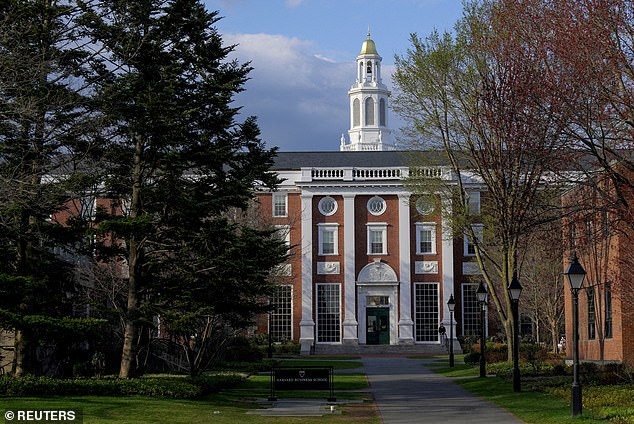
Lawyers for Harvard University filed an amended complaint against the Trump administration on Thursday – just one day after President Trump signed an executive order banning foreign students from attending the school
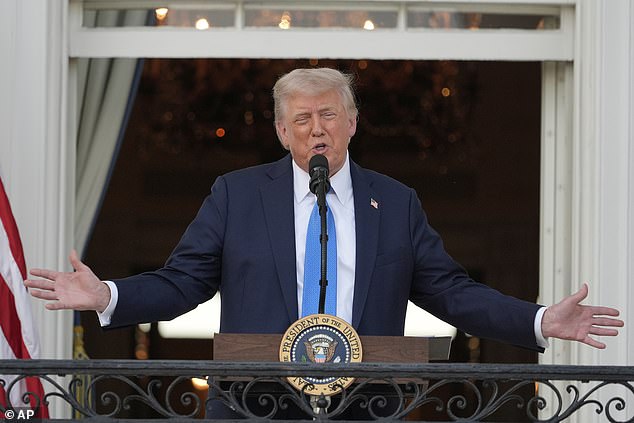
The president issued an executive order Wednesday entitled Enhancing National Security by Addressing Risks at Harvard University, which suspends the school’s student visa program
The president has been butting heads with officials at the Ivy League school ever since he accused it of failing to address antisemitism on campus.
The White House issued a list of demands from the school earlier this year – including for it to ban any student who is hostile to American values and to allow for an audit of faculty and students to measure ‘viewpoint diversity’ at the school.
When university officials then refused, the Trump administration pulled nearly $3 billion in federal grants and contracts from the university – prompting it to sue.
Trump also tried to get the Department of Homeland Security to revoke foreign students’ visas at the school, but last month the university sued, saying it violated its First Amendment rights.
The amended complaint on Thursday came in that lawsuit, and asked the same judge to immediately block Trump’s latest actions as well.
It claims that his executive action constitutes a ‘concerted and escalating campaign of retaliation by the government in clear retaliation for Harvard’s exercising its First Amendment rights to reject the government’s demands to control Harvard’s governance, curriculum and the “ideology” of its faculty and students.
‘With the strike of a pen, the DHS Secretary and the President have sought to erase a quarter of Harvard’s student body, international students who contribute significantly to the university and its mission,’ lawyers for the school wrote, according to the Boston Globe.
‘Without its international students, Harvard is not Harvard.’
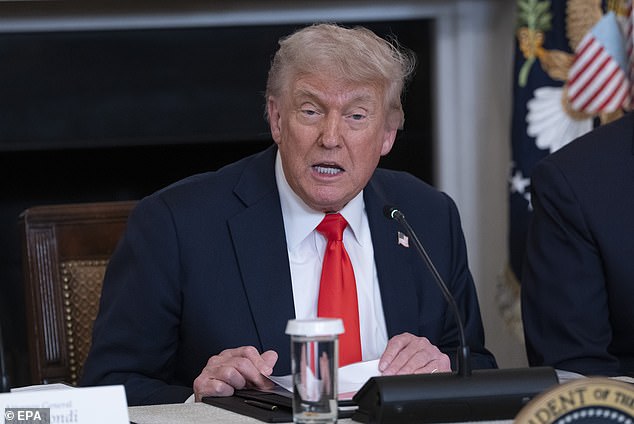
Harvard accuses Trump of retaliating against it for refusing to meet his demands
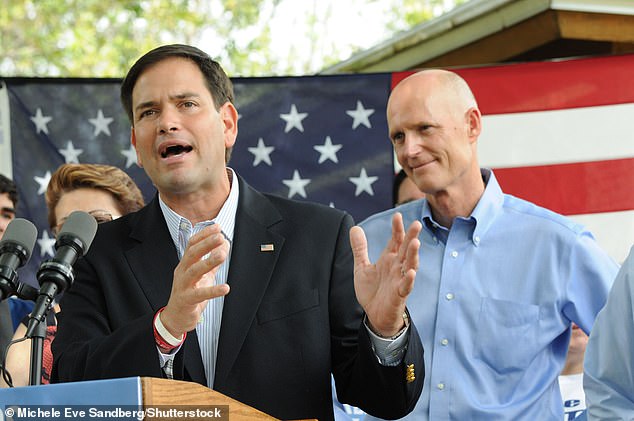
The university also claims Secretary of State Marco Rubio targeted Harvard in a ‘pilot program’ to conduct enhanced vetting of visa applicants’ social media use
It also argues that the government’s efforts to limit its foreign student population ‘fundamentally alter the education that Harvard endeavors to provide to all its students – including domestic students – as it prepares them to contribute to and lead in our global society.’
Trump’s executive order appears to only affect newly-arriving international students, including about 300 first-year students who are set to begin classes in the fall.
But he also urged Secretary of State Marco Rubio to consider revoking current students’ visas – with an estimated 5,000 foreign nationals enrolled at the school.
Harvard also claims in its amended complaint that Rubio, in a cable dated May 30, announced a ‘pilot program’ to conduct enhanced vetting of visa applicants’ social media use – and chose Harvard as the sole school for the experiment.
‘Harvard´s more than 7,000 F-1 and J-1 visa holders – and their dependents – have become pawns in the government’s escalating campaign of retaliation,’ Harvard wrote.
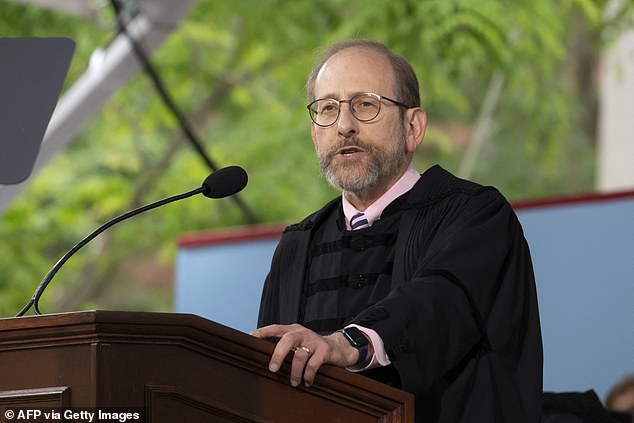
University President Alan Garber said the school’s international office was reaching out to students who may be effected by Trump’s executive order
Shortly after Harvard submitted the amended complaint, University President Alan Garber issued a statement saying the school’s international office was reaching out to students who may be effected by Trump’s executive order.
He wrote that the university was developing ‘contingency plans’ to ensure the international students could continue their work at the Ivy League and throughout the next academic year.
‘Harvard will continue to protect its international students,’ school officials said in a statement as international students like Yonas Nuguse weigh their options.
Nuguse, 21, a student in Ethiopia who endured the Tigray conflict, internet and phone shutdowns, and the COVID-19 pandemic, is uncertain whether he will be able to attend the Cambridge, Massachusetts school in the fall.
The war in the country’s Tigray region forced schools to close in many parts of the province. Nuguse took a gap year to study and save money to pay for his TOEFL English proficiency test in Addis Ababa, Ethiopia´s capital.
‘The war affected me a great deal and when I found out the news that I was accepted to Harvard, I was ecstatic. I knew it was a proud moment for my family, teachers, mentors and friends, who were instrumental in my achievement,’ he said.
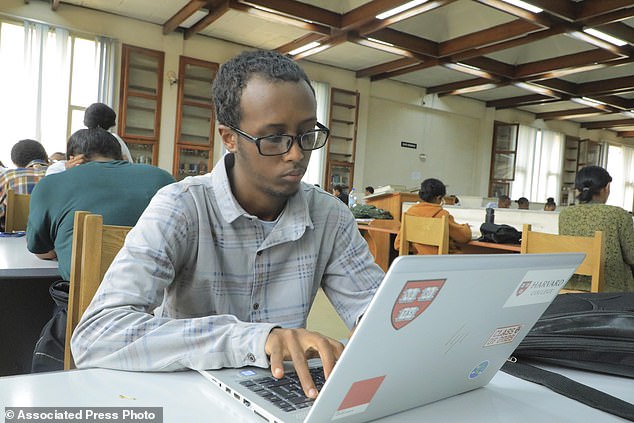
Yonas Nuguse, 21 years old, destined for Harvard University working on a computer at Wemezeker National Library in Addis Ababa, Ethiopia Friday
Jing, a 23-year-old master´s student, is currently completing an internship in China this summer, and is now unsure if he can reenter the U.S. for the fall semester.
‘It is tiring, we all feel numb now. Trump just makes big news headlines once every few days since he got back to the White House,’ said Jing, who agreed to speak under his family name out of concern about retaliation from the Trump administration.
Jing said he is going to watch and see what happens for now, in case the move against international students is a negotiating tactic that does not stick.
The possibility that Trump could block foreign enrollment at other colleges only raises the uncertainty for students planning to pursue their education overseas, said Craig Riggs, who has been working in international education for about 30 years and is the editor of ICEF Monitor. He said he urges families to consult carefully with advisers and not to overreact to the day’s headlines.
‘The rules under which students would make this huge decision to devote years of their lives and quite a bit of money to studying at Harvard have been shown to change quite quickly,’ Riggs said.
An aspiring economist, Nuguse was the only student accepted to Harvard this year from Kalamino Special High School, which caters to gifted students from underprivileged backgrounds from across Tigray.
After receiving acceptances also to Columbia University and Amherst College, Nuguse chose Harvard, which he had long dreamed of attending. He said he hopes it will work out to attend Harvard.
Nuguse was granted a visa to study at Harvard, and he worries it might be too late to reverse his decision and attend another university anyway. He received an email from Harvard last week, telling him to proceed with his registration and highlighting a judge’s order in Harvard’s favor in the dispute over foreign enrollment.
‘I hope the situation is temporary and I can enroll on time to go on and realize my dream far from reality in Ethiopia,’ he said.












